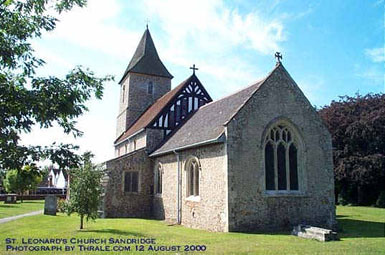
The past week has been embarrassing. George W. Bush ricocheting around Europe insulting most everyone during the commemorations of VE day sixty years ago -- that's painful. If you listened to him with half an ear, you might have formed the impression that the brave Allies, those Brits, Dutch, Germans, and plucky Latvians, led by the good old USA, triumphed over the cowardly Russian Communists who hated freedom. No he didn't actually say that exactly, but that's how his performance came off to this casual observer. He certainly never seemed to acknowledge that the Soviet Union lost 27 million of the 40 million people killed during World War II, that the Red Army provided the vast bulk of the ground troops which accomplished the liberation of the German-occupied continent.
Away from the US President's whirlwind, and the British election, one rather sweet and simple story caught my attention. Writing in the Guardian, Bob Holman recalled how the clergy played new and important roles in keeping life going during World War II.
He credits urban clergy for staying at their posts, burying the dead and comforting the bereaved; one Fr. John Grosier, aware that homeless people had no food, "smashed open a food depot."
But it was in the countryside that Holman says the clergy played the most vital roles, helping villages and towns absorb the mass of evacuated children and mothers from London. They found housing, opened churches as schools and community centers and fed children in makeshift canteens.
The experience taught many English countryside clergy about true urban poverty for the first time. "When William Temple was appointed archbishop of Canterbury in 1942, he became, on Christian grounds, a leading advocate of the welfare state, addressing huge meetings across the country." Mediated by the clergy, Catholic, Protestant and Anglican, middle class people for the first time began to imagine that a Labor government might not mean the end of the world. And so, after the war, a Labor government laid down the basics of the modern welfare state.
No comments:
Post a Comment